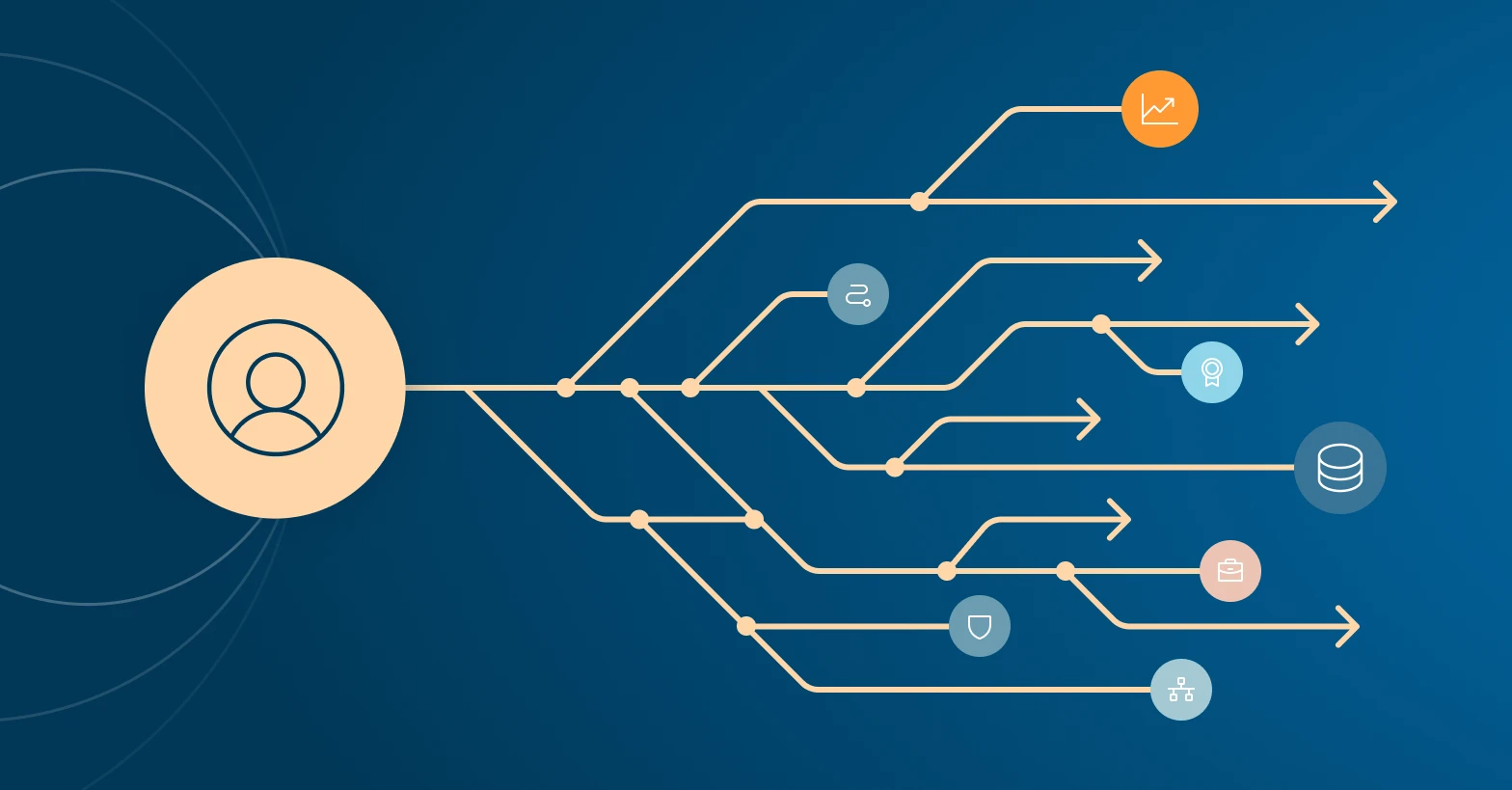If you’re looking for a new, rewarding caree path that involves data and a lot of dot-connecting, data governance might be just the direction for you. Here’s what starting out as a Collibra specialist looks like, what the job takes, and what it offers (and also, how you can join Murdio, as we’re always on the lookout for smart Collibra experts.)
Data governance: a rising priority in the job market
The World Economic Forum’s Future of Jobs Report 2025 paints a pretty clear picture: the job market is changing, and it’s changing fast. (If you participate in it, you probably know that already.)
Thanks to the development of AI, many jobs are expected to disappear. But many more will be created. In fact, according to the report, by 2030, we’re looking at nearly 78 million new jobs globally, with data-driven roles right at the center of this shift.
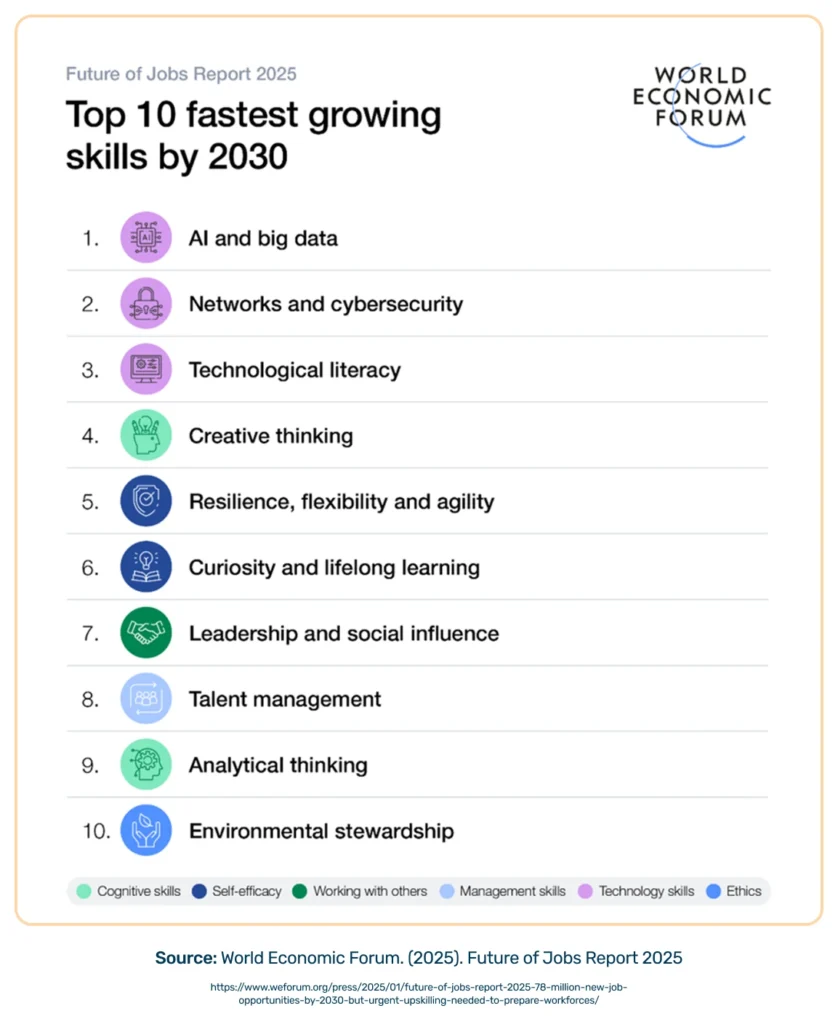
Among the most in-demand positions? Data analysts, big data specialists, and digital transformation experts, all of whom rely on strong data governance practices. Without clean, well-managed data, even the most advanced AI models or dashboards can fall apart. That’s where specialists in the field, along with tools like Collibra, can make a real difference.
The report also highlights something else: the skill set that employers are looking for is evolving. Around 39% of core skills are expected to change by 2030. Sure, technical skills like AI, big data, and cybersecurity are in demand. But so are more human-centric skills such as creative thinking, adaptability, and resilience.
It’s a strong signal that companies aren’t just looking for coders or analysts anymore. They need people who can connect the dots between data, people, and processes. And that’s exactly what a good Collibra Specialist does.
Why is it worth choosing a career in data governance?
If you’re wondering whether it’s worth getting into data governance (or leveling up in it), you’re not just betting on a trend.
Data is now one of the most valuable assets for organizations across industries. There is really no business without data. And as companies grow more reliant on data for decision-making, analytics, compliance, and automation, the demand for effective data governance has gone through the roof.
According to Gartner, by 2026, 20% of organizations will have formal data governance frameworks in place, up from less than 10% in 2021. At the same time, IDC projects that global data creation will reach 180 zettabytes by the end of 2025. This massive data boom has fueled the growth of tools and platforms like Collibra, which help organizations manage data quality, lineage, ownership, and compliance.
Becoming a Collibra Specialist in this business landscape positions you at the intersection of technology, business, and data strategy. And this job is not just configuring software. It’s also enabling smarter decision-making, ensuring regulatory compliance, and supporting data democratization across the enterprise.
And it’s not just the global trend that matters. In markets like Poland, we’re seeing a major shift. The custom software development model that once dominated the local tech scene is gradually losing ground. Many companies that used to rely on project-based, build-from-scratch development are now struggling to stay relevant or afloat.
On the other hand, specialized service providers – those focused on niche, high-demand areas like data governance – are proving more resilient and sustainable.
Choosing a career path in data governance, especially with leading platforms like Collibra, means aligning yourself with long-term market needs and joining a field that’s evolving fast and offering ample room for professional growth.
Entry-level Collibra Specialist roles
If you’re thinking about moving towards the Collibra environment with the skills you already have – maybe in software development, data analytics, project management, etc. – here’s what that career path can look like.
The starting point
If you’re just beginning your journey in data governance, you might enter the field through roles such as:
- Collibra Administrator
- Junior Data Governance Specialist
- Collibra Support Specialist
- Collibra Workflow Developer
Roles like these involve configuring the Collibra platform, onboarding new users, assisting with data catalog implementation, and providing support to data owners, stewards, and analysts. Entry-level specialists can also help maintain metadata, define workflows, and make sure that business glossaries are accurate and up to date.
At Murdio, we’re currently looking for an Entry-level Collibra Specialist to join our team. As you grow in the field, possible future roles include:
- IT-focused:
Collibra Integration Developer
Collibra Workflow Developer
Collibra Engineer
- Implementation-focused
Member of a Technical Implementation Team
Collibra Developer - Solution-focused
Collibra Ranger
Collibra Solution Architect
So, as you can see, there’s no single path from the starting point. And depending on your strengths and career growth direction, starting as an Entry-level Collibra Specialist can get you in different positions and on different trajectories.
Skills and qualifications
You don’t need Collibra expertise to start, but some technical understanding is definitely helpful. Depending on the focus of the job (more development-focused vs. more solutions-focused), what comes in handy is:
- Basic knowledge of data governance principles
- Familiarity with relational databases and data models
- Understanding of metadata, lineage, and data quality concepts
- Communication skills to interact with both technical and business teams
- Experience with Excel, SQL, or visualization tools like Power BI or Tableau is usually a plus
At Murdio, what we’re looking for specifically in an Entry-level Collibra Specialist is:
- A degree (or final-year student) in Computer Science, Information Technology, Data Science, Business Administration, Economics, or a related field.
- 5+ years of experience as a Software Developer, Quality Assurance Engineer, System Analyst, Data Analyst, Systems Engineer, Business Analyst, Business Consultant, or similar required.
- Basic understanding of programming principles (any language – Java, Python, Groovy are a plus).
- Familiarity with databases, data structures, or BPMN is a bonus.
- A strong interest in data management, process automation, and technology.
- Problem-solving mindset and eagerness to learn.
- Good communication skills and a collaborative attitude.
- Fluent in English (C2 required), other languages are a plus.
(And no previous Collibra experience required — we will train you within our Murdio Academy.)
Training and certifications
Speaking of training, Collibra offers structured training through its Collibra University, where beginners can access learning paths, including:
- Collibra Ranger Certification (for advanced users, but you can work up to this)
- Collibra Platform Fundamentals
- Data Steward Learning Path
- Workflow Designer Courses
With these kinds of certifications, you can not only build your competence but also signal credibility to potential employers.
Entry-level salary expectations*
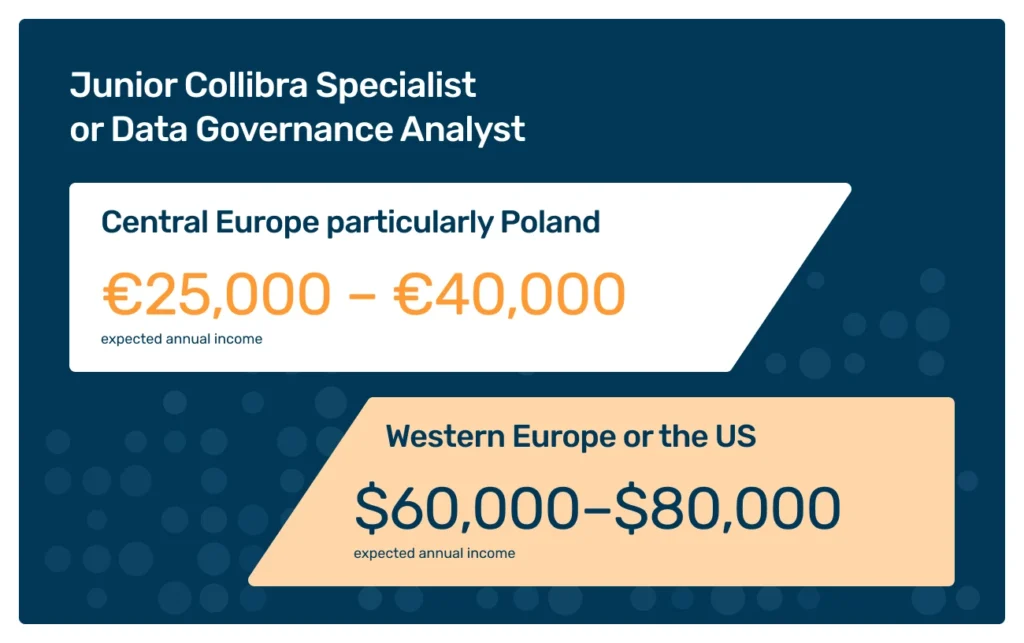
Collibra salaries vary depending on location, experience, and company size.
- In Central Europe, particularly Poland, Junior-level Collibra Specialists or Data Governance Analysts can expect to earn €25,000–€40,000 annually
- In Western Europe or the US, entry-level roles can reach $60,000–$80,000 annually
*We’re mostly talking about full-time job salaries. If you go the consultant route, with hourly rates, you can work up to higher amounts, for sure. According to Glassdoor, a salary for someone working up to a year in the industry as a Collibra Data Governance Consultant can go up to $134,000 a year.
ZipRecruiter cites $69 as the average hourly rate of a Data Governance Consultant.
Mid-level Collibra Specialist roles
Moving up the ladder
After gaining 2-4 years of experience, many professionals transition into mid-level roles such as:
- Data Governance Consultant
- Collibra Developer
- Business Analyst with a Data Governance Focus
- Data Steward
(Again, we’re mostly talking the corporate route here. When you’re on your own as a consultant, you have more freedom, and also can combine different services and skills that you select.)
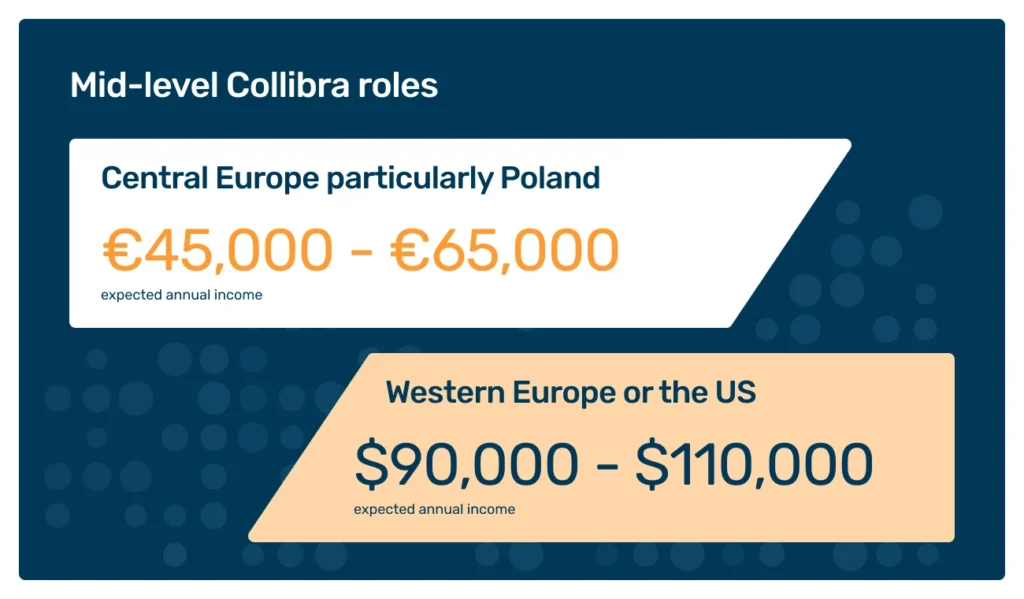
This stage typically includes greater responsibility, such as leading parts of the Collibra implementation, managing user roles and policies, and integrating Collibra with other enterprise systems (like Snowflake, AWS, or Tableau).
Skills and responsibilities
At this level, you’ll need:
- Proficiency in Collibra’s APIs and data integration tools
- Experience with operating models and data governance frameworks (like DAMA-DMBOK, which we follow ourselves)
- The ability to translate business needs into Collibra configurations
- Strong stakeholder communication and project coordination skills
Progression and timelines
Many professionals reach mid-level positions within 2-3 years, especially if they actively pursue certifications and hands-on project experience. Of course, this can vary depending on multiple factors, so this is just an initial estimate.
Advanced certifications
Mid-level specialists often pursue:
- Collibra Ranger Certification (if not already acquired)
- Collibra Workflow Engineer courses
- Data Governance Implementation Best Practices
- Collibra Data Quality Steward
Salary expectations*
Mid-level Collibra roles typically earn:
- €45,000 €65,000 annually in Central Europe
- $90,000–$110,000 annually in the US
(*Employed full time. Consulting rates can go higher than that.)
Senior and leadership positions
What does leadership look like in this space?
Once you’ve built substantial experience (5-8+ years), you can advance into leadership roles such as:
- Senior Data Governance Consultant
- Collibra Lead
- Collibra Solutions Architect
- Collibra Product Owner
- Collibra Ranger
- Data Governance Expert
- Data Governance Manager
- Data Governance Architect
These roles involve setting strategic direction for governance programs, mentoring junior staff, leading Collibra implementations across enterprise environments, and aligning governance goals with broader business strategies.
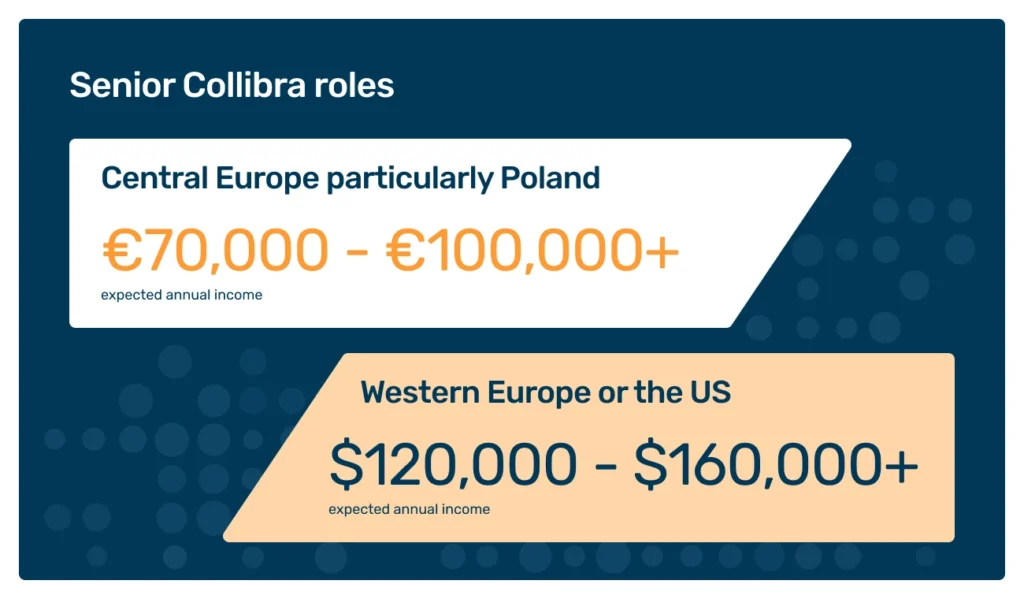
Responsibilities and impact
Leaders in this field focus on:
- Defining data policies and standards
- Leading multi-country or multi-department implementations
- Aligning data governance with regulatory compliance (e.g., GDPR, CCPA)
- Collaborating with C-level stakeholders
Salary range
Salaries for senior roles are significantly higher and can roughly be:
- €70,000–€100,000+ annually in Central Europe
- $120,000–$160,000+ annually in the US or UK
(Or higher, if you’re an independent consultant working with clients on a project by project basis.)
How to become a Collibra Specialist
Career switch? Totally doable.
As we’ve said before, you don’t have to start your career in data governance to become a Collibra Specialist. Many professionals transition from roles in:
- Business intelligence
- Data analysis
- IT consulting
- Project management
- Compliance or legal functions
We have people coming from different backgrounds – take a look at their career stories:
- Stan Radomiński, Collibra Solution Architect at Murdio and a Collibra Ranger, among other titles, wore many hats before he joined us, including: business consultant, EU funds grant writer, trainer, academic teacher, COO, sales rep, and project manager.
His advice for people who want to get started in the data governance field? “Dive into one of the areas of the DMBoK Data Governance wheel. (And join the best team there is – Murdio!)”
- Grzegorz Jabłoński, another of our Collibra Rangers and a Certified Data Management Professional (CDMP) started as a data analyst before transitioning into data governance and management specifically.
His advice for beginners? “Become proficient in a single data governance tool and get involved in real projects to learn from more senior colleagues and fully understand how data governance works in practice.”
- Piotr Sawczuk, a Collibra Ranger and certified Ab Initio consultant has always worked with data, starting with Excel and later moving to Power BI. One of the breakthrough moments in his data governance career was preparing for and passing the Collibra Ranger certification.
He sees it as a great opportunity to get into the world of data governance, despite the several sleepless nights it took to learn everything he needed to pass it.
- Bozhena Baranovskaya, who’s also a Collibra Ranger, also certified in Zeenea, among others, went into data governance from tech support in retail and banking.
Apart from joining Murdio, she also recommends: “Never stop learning if you want to grow in the data governance field.”
- The founders of Murdio, Łukasz Banaszewski and Karol Gabarkiewicz, met as developers working in investment banking. As they grew their skills, they went in naturally complementary directions, with Karol focusing more on the business and Łukasz on technology.
When they started Murdio, they had a perfect mix of skills and experience to cater to the needs of enterprises using Collibra and other data governance tools.
If you already have domain knowledge and understand business processes, transitioning to a Collibra role might just require learning the platform and getting certified.
A good way to begin is by:
- Exploring free Collibra University resources
- Taking a beginner certification
- Practicing on data governance case studies or sandbox platforms
- Networking with others in the data governance space (LinkedIn groups, events)
- Applying for junior Collibra or data stewardship roles to gain hands-on experience
What kind of projects can you expect at Murdio?
At Murdio, we specialize in end-to-end data governance implementations, with a particular focus on Collibra.
Our typical projects include:
- Enterprise-wide Collibra implementations, from data catalog setup to integration with third-party systems
- Metadata management and lineage mapping for organizations in finance, telecom, and healthcare
- Custom workflow design for governance processes tailored to each client’s needs
- Collibra upgrades and migration services to support platform evolution
- Training and onboarding for internal data governance teams
We work in several models, depending on the needs of our clients:
- We offer Collibra experts for hire to join our clients’ teams for Collibra-related projects.
- We offer entire technical implementation teams that you can be a part of.
- We implement specific Collibra use cases and custom-develop Collibra features and integrations for more advanced client needs.
- We also offer other data governance tools.
What’s really important is that we don’t just “install and leave.” We build long-term partnerships and help organizations shape their entire data governance strategy with Collibra at the center.
We also work with other data governance tools like Solidatus or Raito, so there’s potential for learning more than just Collibra. (Though, believe us, there’s lots and lots to learn when it comes to Collibra and the different integrations with enterprise-grade tools.)
Some of our past projects include:
- Building a stronger AI governance framework for a global financial institution, with the development of a centralized AI Inventory Platform — a Collibra-like system tailored specifically for AI/ML models.
- Hiring out a Technical Product Owner to help resolve persistent implementation problems for a global energy company, a long-time Collibra customer with a backlog of over 350 tasks related to Collibra.
- Helping catalog and manage critical sensitive data from more than 100 different apps for a Swiss bank facing compliance challenges.
- And many, many more.
What does the application process look like at Murdio?
If you’re looking to join Murdio as a Collibra Specialist, here’s what the application process usually looks like (and it’s really straightforward):
- Submit your CV through our website or respond to a job posting. We’re especially interested in people who show curiosity, willingness to learn, and a genuine interest in data.
- We’ll review your CV, and if it looks like we’re the right fit for each other, we’ll set up an online interview. (If we’re not the right fit, we’ll let you know, too.)
- During the interview, we’ll ask you about your experience and tell you more about Murdio and what it’s like to work here.
- Within two days, we’ll let you know what’s next.
- If both sides feel like this is going to work, we’ll meet again to talk about the details.
- And that’s it. If everyone’s happy, you’re hired!
Wrapping up: Why a Collibra career at Murdio makes sense (especially now)
The demand for Collibra Specialists is growing, and it really is a career worth looking into if you want to transition to an in-demand niche.
At Murdio, we’re a specialized, expert-driven team that values growth, learning, and long-term collaboration. We work on projects that make a real difference to how companies use their data. And we’re always on the lookout for people who want to grow with us, so let us know if this is you!
Share this article
Related Articles
See all-

15 November 2025
| Collibra experts for hireWhat is Collibra Edge? A 2025 Explainer
-
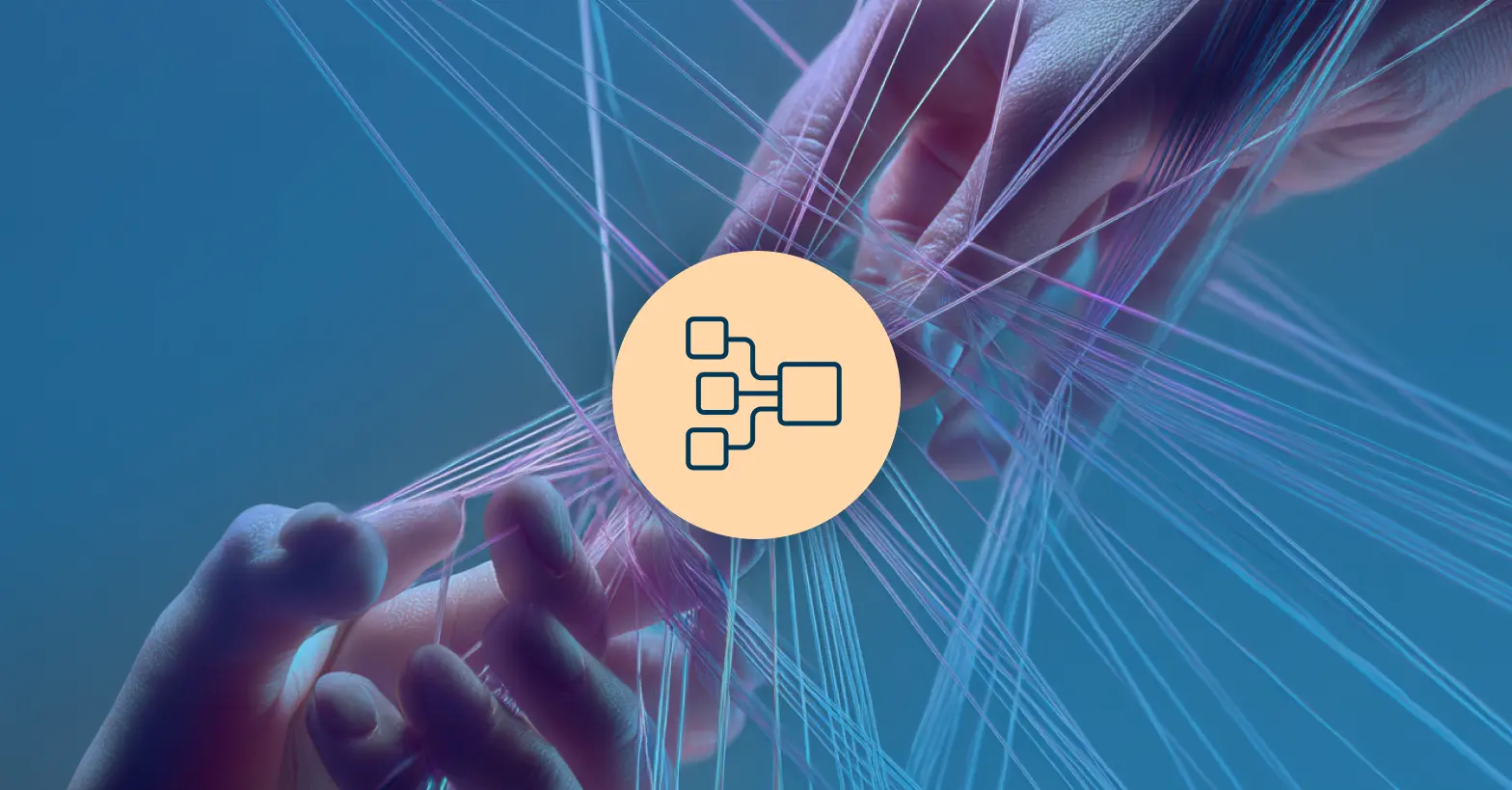
15 November 2025
| Collibra experts for hireThe definitive guide to Collibra Data Lineage
-

3 November 2025
| Collibra experts for hireCase Study: Discovering, classifying and cataloging unstructured data for a European bank

